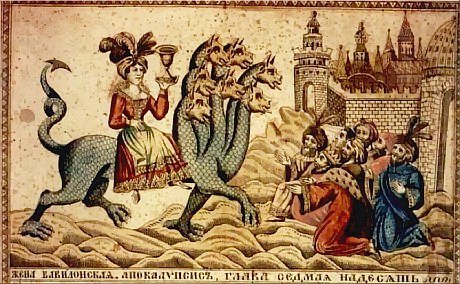The biggest falling away from the faith began after the Roman Empire made Christianity the imperial religion. This brought a flood of unsavory and selfishly ambitious people into the church. They sought leadership positions in the church which were viewed as the easiest and quickest path to wealth and power. Quickly, the church was transformed from a vitally alive and powerful force spreading faith throughout the world in the face of relentless persecution to little more than a political pawn of the state
Seeing the trap the church fell into during this period caused many to think that the church should not have anything to do with the state, but that is not the case. The Great Commission given to the church is a call to “disciple all nations,” not just individuals. How can we do this if we do not engage with them? There is a ditch on either side of the path of life, and those who overreact to the ditch on one side will often fall into the other extreme. The path of life is usually between extremes, and it takes great faith, wisdom, and above all, staying close to the Lord to stay on the path. This is also true in the church’s relationship to the state. We are called to be “in” the world as salt and light, but not “of” it—or not like it in basic ways.
No doubt there were many great Christians both within and outside the institutional church during the time of the great falling away in the Middle Ages. Many of these were part of the “antipas,” or anti-pope, movement that the Lord commended in His word to the churches. Even so, as access to the Scriptures was removed from church life—and in church authority, dogma was elevated as a higher authority than the Scriptures. The church and the Western world descended into a terrible darkness. During this time, those who held to the apostolic faith based on the Scriptures were persecuted even more viciously than under the Roman Empire.
We will not go into the detail of how horrible and antichrist the church became in this period, but historians generally agree that about fifty million declared heretics by the church in this time were martyred. Halley’s Bible Handbook corroborates this number. The pope assumed every title attributed to Christ in Scripture and was elevated to be considered, by doctrine, even “God on earth.” Allegiance to the pope, by acknowledging him as “the lamb of God,” was a primary way one was declared a heretic or not.
The pope was not considered a secular authority, but he dominated the West by determining who could hold secular authority. In “Christian Europe,” those who held the position of king would have to crawl on their knees up a hill to the pope’s throne, kiss his ring, and receive his blessing before they could assume their own throne. In this way, the “harlot” church fulfilled the prophecy that she “reigns over the kings of the earth” (see Revelation 17:18).
Source →


